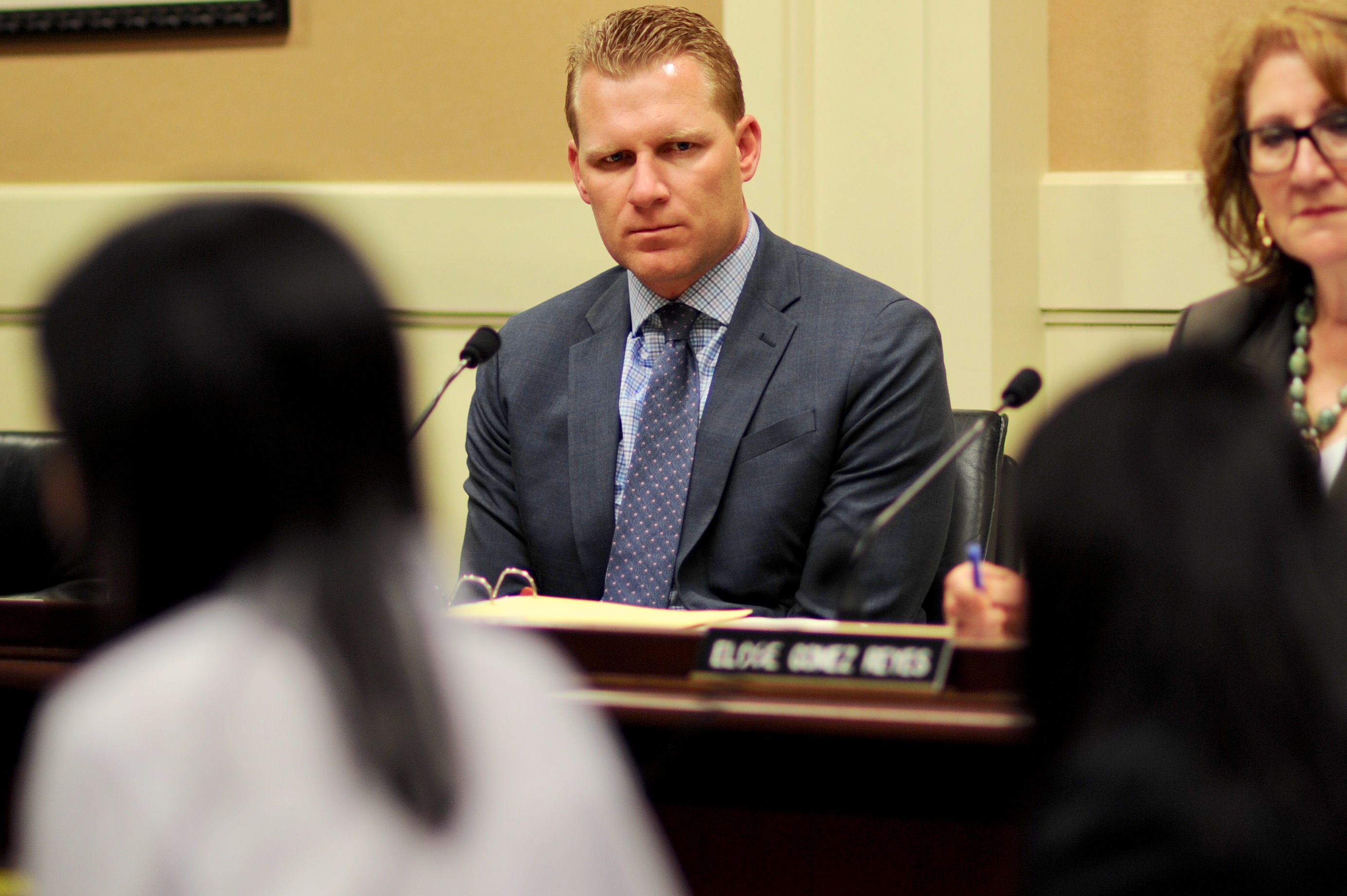
Sen. Nancy Skinner. (Photo: sd09.senate.ca.gov)
SB 301 Seeks to Regulate ‘High-Volume Third-Party Sellers’ and Online Marketplaces
By Chris Micheli, March 15, 2021 2:24 am
On March 10, State Senator Nancy Skinner (D-Berkeley) amended her Senate Bill 301 relating to online marketplaces. The bill would add Title 1.4D (commencing with Section 1749.8) to Part 4 of Division 3 of the Civil Code.
Section One of the bill would add Title 1.4D titled “Online Marketplaces.” This section would provide definitions for the following terms:
- “High-volume third-party seller” to mean a participant in an online marketplace who is a third-party seller and who, in any continuous 12-month period during the previous 24 months, has entered into 200 or more discrete sales or transactions of new or unused consumer products resulting in the accumulation of an aggregate total of $5,000 or more in gross revenues.
- “Illegitimate product” to mean a product about which either of the following is shown to be true by clear and convincing evidence:
- The product is counterfeit.
- The product has been stolen.
- “Online marketplace” to mean any electronically based or accessed platform that does both of the following:
- Includes features that allow for, facilitate, or enable third-party sellers to engage in the sale, purchase, payment, storage, shipping, or delivery of a consumer product in the state.
- Hosts one or more third-party sellers.
- “Regulated product” to mean a product subject to regulation by a federal or state government agency.
- “Retailer” would include the following:
- Every seller who makes any retail sale or sales of tangible personal property, and every person engaged in the business of making retail sales at auction of tangible personal property owned by the person or others.
- Every person engaged in the business of making sales for storage, use, or other consumption or in the business of making sales at auction of tangible personal property owned by the person or others for storage, use, or other consumption.
- “Seller” to mean a person who sells, offers to sell, or contracts to sell a consumer product through an online marketplace.
- “Third-party seller” to mean any seller, independent of an operator, facilitator, or owner of an online marketplace, who sells, offers to sell, or contracts to sell a consumer product in the state through an online marketplace.
- “Third-party seller” would not include a seller that meets all of the following requirements:
- The seller is a business entity that has made available to the general public the entity’s name, business address, and working contact information.
- The seller has an ongoing contractual relationship with the owner of the online marketplace to provide for the manufacture, distribution, wholesaling, or fulfillment of shipments of consumer products.
- The seller has provided to the online marketplace identifying information that has been verified.
Online marketplaces would have to require the responsible officer of a business operating as a high-volume third-party seller, or the individual if it’s an individual seller, on the online marketplace to provide the online marketplace with the following information within 24 hours of becoming a high-volume third-party seller:
- The name of the business if applicable, and the first and last name of the responsible officer or individual.
- The street address of the business or individual.
- The phone number of the business or individual.
- The email address of the business or individual.
- The business tax identification number or, if the high-volume third-party seller does not have a business tax identification number, a taxpayer identification number.
The online marketplace would be required to verify the information provided within three days, as well as any changes to the information that is provided to the marketplace by a high-volume third-party seller. If a high-volume third-party seller provides a copy of a valid government-issued tax document, information contained within the tax document would have to be presumed to be verified as of the date of issuance of the record or document. The online marketplace would have to keep the information provided for no less than five years on a secured server.
An online marketplace would be required to do all of the following:
- Display on their electronically based or accessed platform, clearly, conspicuously, and reasonably designed to be seen by all users of the platform, a link to the following information:
- The procedures required for retailers and law enforcement agencies to make a claim that a product offered through the online marketplace is an illegitimate product or to request information regarding the sale of illegitimate products on the online marketplace.
- Contact information, including, but not limited to, a phone number and an email address, that a person may contact to inquire about procedures and information related to illegitimate products.
- Disclose to a law enforcement agency, upon request from that agency, information within 10 business days of the initial request.
- Disclose to a retailer, upon request from that retailer, specified information within 10 business days of the initial request.
- Disclosing incorrect or outdated information to a law enforcement agency or retailer shall be deemed a violation of this title unless the marketplace can demonstrate that the disclosed information was verified within the year before the disclosure.
Under this bill, the Attorney General may adopt regulations with respect to collecting and verifying information. These regulations are to be limited to what is necessary to collect and verify that information. The Attorney General may adopt regulations for the enforcement of this title. In addition, a civil action may be brought in the name of the people of the State of California by the Attorney General to enforce this title. And, anyone who violates any provision of this title may be liable for a civil penalty not to exceed $10,000 for each violation.
This title is of statewide concern and preempts all laws adopted by a local jurisdiction regarding online marketplaces requirements in relation to verification of information from high-volume, third-party sellers. The title would become operative on July 1, 2022.
Section Two of the bill would provide a legislative finding and declaration that the regulation of high-volume, third-party sellers in this Act is a matter of statewide concern rather than a municipal affair and, as a result, the Act would apply to all cities, including charter cities.
- Hearings on Third-party Claims - February 18, 2026
- Cullen Earthquake Act - February 17, 2026
- Encumbrances in Eminent Domain - February 17, 2026





There will always be an online marketplace for stolen goods and the state is powerless to manage it.